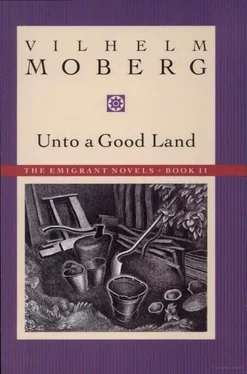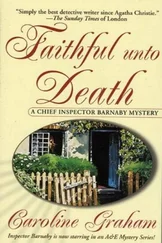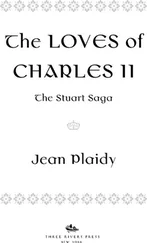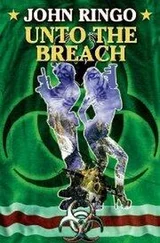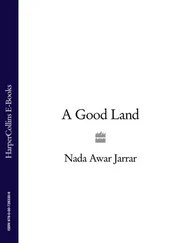How could this be possible? He had practiced this sentence so many times. Yet the American failed to understand him. The book must be wrong.
A man in fiery red pants and a tall black hat kept following them. On a leash he led two sharp-nosed, starved-looking dogs. “You want to buy a dog?” Robert did not understand these words. He looked at the dogs whose long, red tongues were hanging out of their mouths; they seemed fierce and dangerous. Robert was afraid of the obtrusive man; now he had taken his arm. He did not know what the man wanted, but he wanted to get away. At last he managed to free himself from the man’s grip, and he and Arvid hurried their steps until the stranger was lost in the crowd.
Now Robert began to contemplate their situation, and he became fearful: here they walked about, entirely alone, in a town where everyone was a stranger, every tenth man a criminal; they were unable to say anything to anybody, they understood nothing that was said to them. If danger should overtake them they could not even call for help. Perhaps the Finn had exaggerated, probably only one man in twenty was a robber, but even so it was unpleasant. They did not know what robbers in America looked like, but they had seen many faces behind which an evil and treacherous soul might be hidden. He suggested that they return to their company. He did not wish to scare Arvid, he only said the others might be apprehensive if they stayed away too long. He was not afraid for his own sake, nor did he think Arvid had anything to fear; still—
“I have my nickel watch,” Arvid reminded him, and began nervously fingering the broad, yellow brass chain which hung on his vest.
When Arvid left home his father had given him this watch, his dearest and most expensive possession. The father had said that the watch must be considered his paternal inheritance, given to him at this time because of his emigration. It was of fine nickel and had cost twelve riksdaler with the chain. During the forty years Arvid’s father had worked as cotter under the manor of Kråkesjö, it was all he had been able to save as inheritance for his son. The cotter would not have given Arvid his inheritance in cash, even if he had had any; he would have been afraid Arvid might spend it on snuff and brännvin. But a watch he would always keep with him: he had admonished his son never to sell or lose his Swedish inheritance.
Now Arvid was walking about in the dangerous town of New York, surrounded by robbers and swindlers, and he was carrying the watch with him.
“Put it in your pants pocket,” advised Robert. For it occurred to him that the shining brass chain on Arvid’s stomach might attract robbers. Arvid unhooked the chain and put the watch in his trousers pocket.
So they continued their walk up the street. Arvid wanted to go farther, he was happy today; Robert had never seen him so excited and gay. Arvid said that as long as he was back on land again, he wanted really to use his legs, he wanted to walk all the way to the end of the street. Now that they were in America and could go anywhere dry shod, he was willing to walk the whole way to where they would settle, however far it was. He was sure he could walk there, because he was one of those who could use their legs.
A blond girl in a red dress held out a basket of fruit to the boys — black-red, juicy cherries. Robert shook his head; in vain he tried to remember a suitable English word from his language book; he would have liked to tell the girl (even if it was not true) that he had just bought a bagful of cherries.
But the girl remained standing in front of them, smiling at them in a kind, friendly way, and they each took a handful from her basket, as though wishing to taste her cherries before deciding whether to buy. The girl said something that sounded rather kind and went on her way. The boys were a little ashamed of their daring, and Robert regretted that he hadn’t at least said “Thank you.” That much he knew in English.
The juicy cherries were a treat to their dry mouths, and they ate them eagerly and spit the stones about them. A fat woman offered big loaves of wheat bread for sale. The loaves had been made in the form of rings, and she carried them hanging around her arms; the boys thought this quite ingenious: to use one’s arms for bread poles. The smell of the fresh bread aroused their appetites — they felt hungry.
A black-haired, ragged little man, carrying a hand organ on his back and holding a monkey on a leash, stopped them with a stream of words. But they understood not a single syllable issuing from his mouth. Neither one of them had ever seen a monkey before. The creature went on two legs like themselves, and it had a hairless behind, red and swollen like an open wound. Arvid, in great disbelief, stared the monkey in the face and said with great emotion: The creature looked impudent — it was inexcusable of an animal to resemble a human being so closely.
A cart loaded with fruit turned over in the gutter with much noise and commotion. Large, yellow, and bigger than apples, the fruit rolled into the horse and swine spillings of the street and was allowed to remain there. The driver turned his vehicle back on its wheels and drove on, his cart empty. None of the walkers paid any attention to the accident, none made the slightest move to pick up the fruit. Only Arvid and Robert remained standing there a few minutes, but they were afraid to gather any of the beautiful unknown fruit.
The sight of so many edibles increased their hunger. But they had no money, they must wait to eat from their own food baskets — Robert would have to eat with Karl Oskar’s family, Arvid with Danjel Andreasson’s.
The boys would not admit to each other that their stomachs were calling loudly for food, nor would they disclose their astonishment during this walk. They had never imagined that all these things existed in the world, these tall houses, these shops with inscriptions over their entrances in glittering letters, all these valuable things that were hung or spread in the store windows: glittering jewelry, gold, silver, precious stones, watches, rings, chains of gold and silver; expensive materials, cloth of gold and of silver, linen, wool, silk, velvet in quantities that could have covered this whole, long street; the expensive, gilded carriages, the light-footed, agile horses in glittering harnesses; all the things with names and uses they did not know, which they could only look at, admire, and guess about.
Before they recovered from one surprise, another even more amazing met their eyes. Two tall men in striped green and white coats and trousers, each carrying an upright pole with a placard on its upper end: See the Anaconda! See the Serpent Charmer! See the Great Boa Constrictor! Five Cents! The men stopped at the corner, calling loudly, and Robert tried to interpret their message. From his book he recognized the word boa constrictor. And in an open place near by he espied a reddish tent with the same inscription; then he understood what it meant and explained to Arvid: Over there in the tent one could see the boa constrictor, the most dangerous snake in the world, it might be as long as forty feet; it cost only five cents to go in and see. .
The boa constrictor? ruminated Arvid. Hadn’t Robert once read to him from his History of Nature about this peculiar crawling reptile? He seemed to remember: “. . the boa constrictor can be dangerous because of its great size and strength; it has happened that it has crushed and swallowed people; it grows to be almost forty feet long. . ”
“If only we each had five cents!”
It hurt Robert that they must miss this opportunity to look at the world’s greatest snake; a snake forty feet long that swallowed people, to be seen for only five cents. .
Читать дальше
